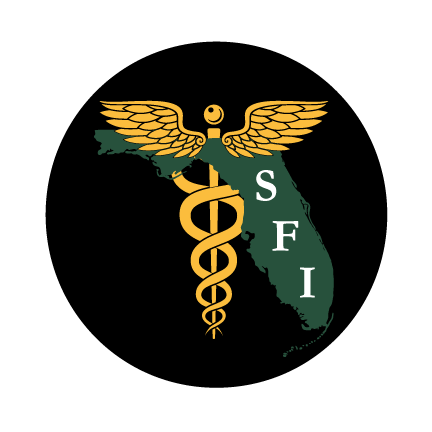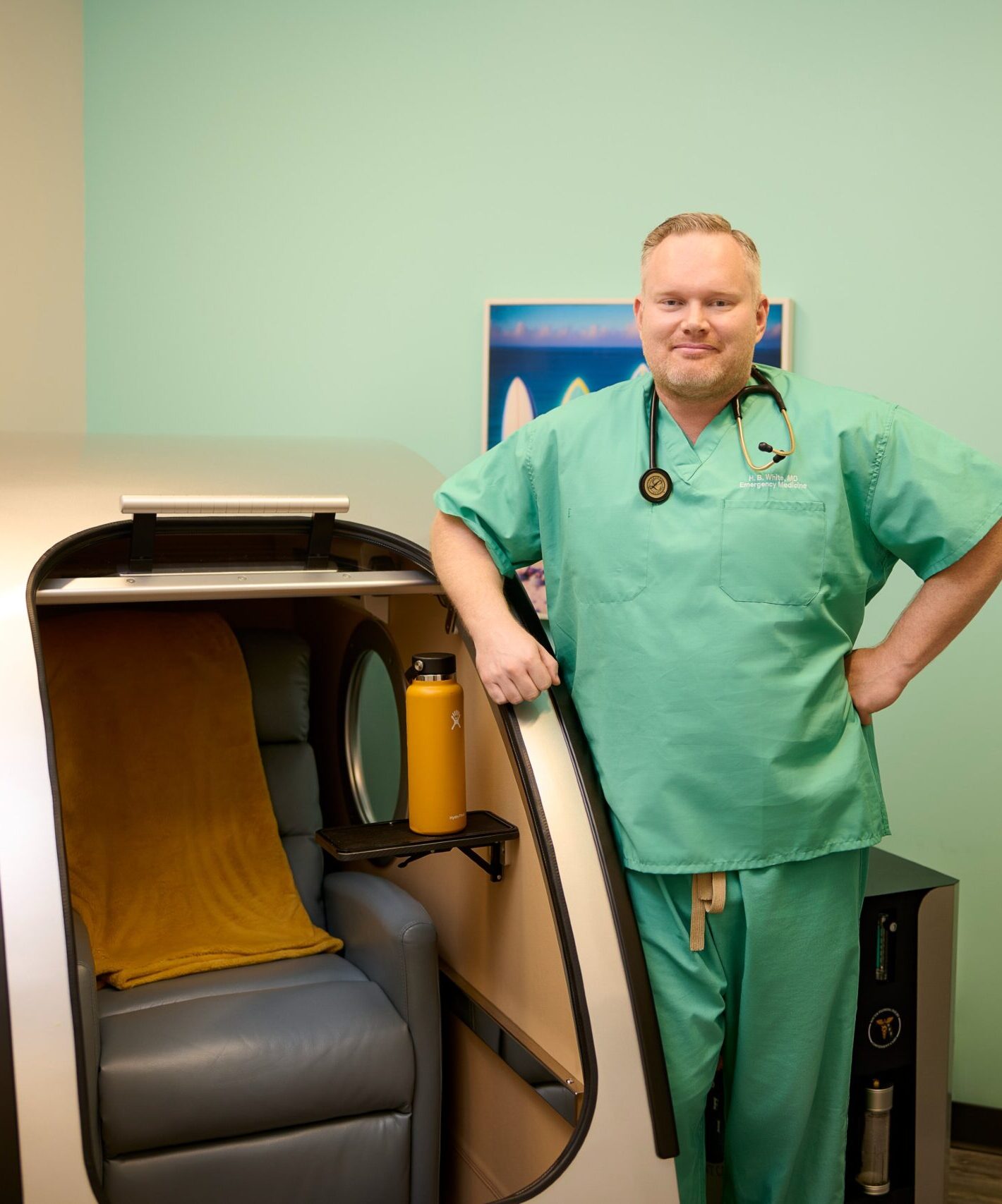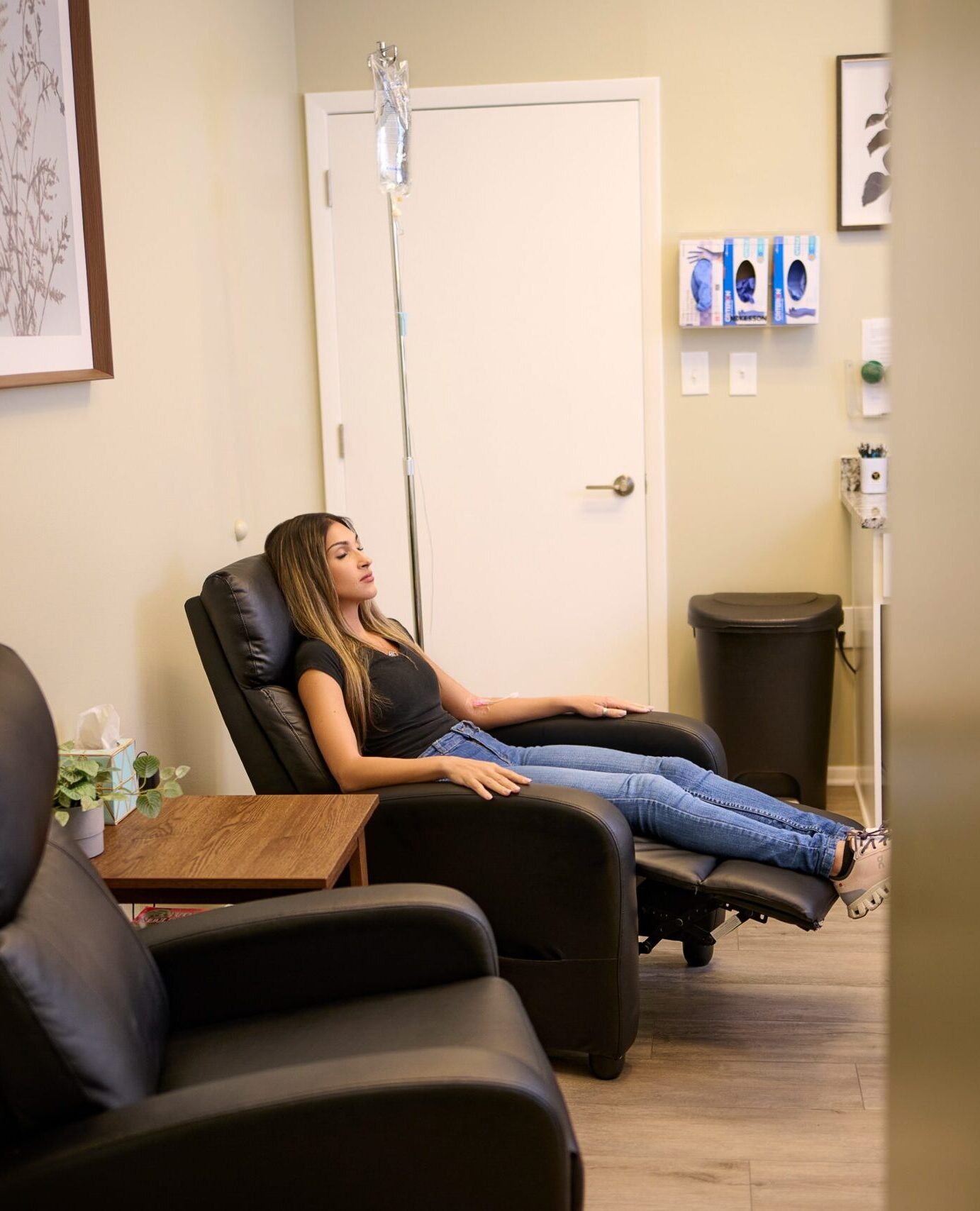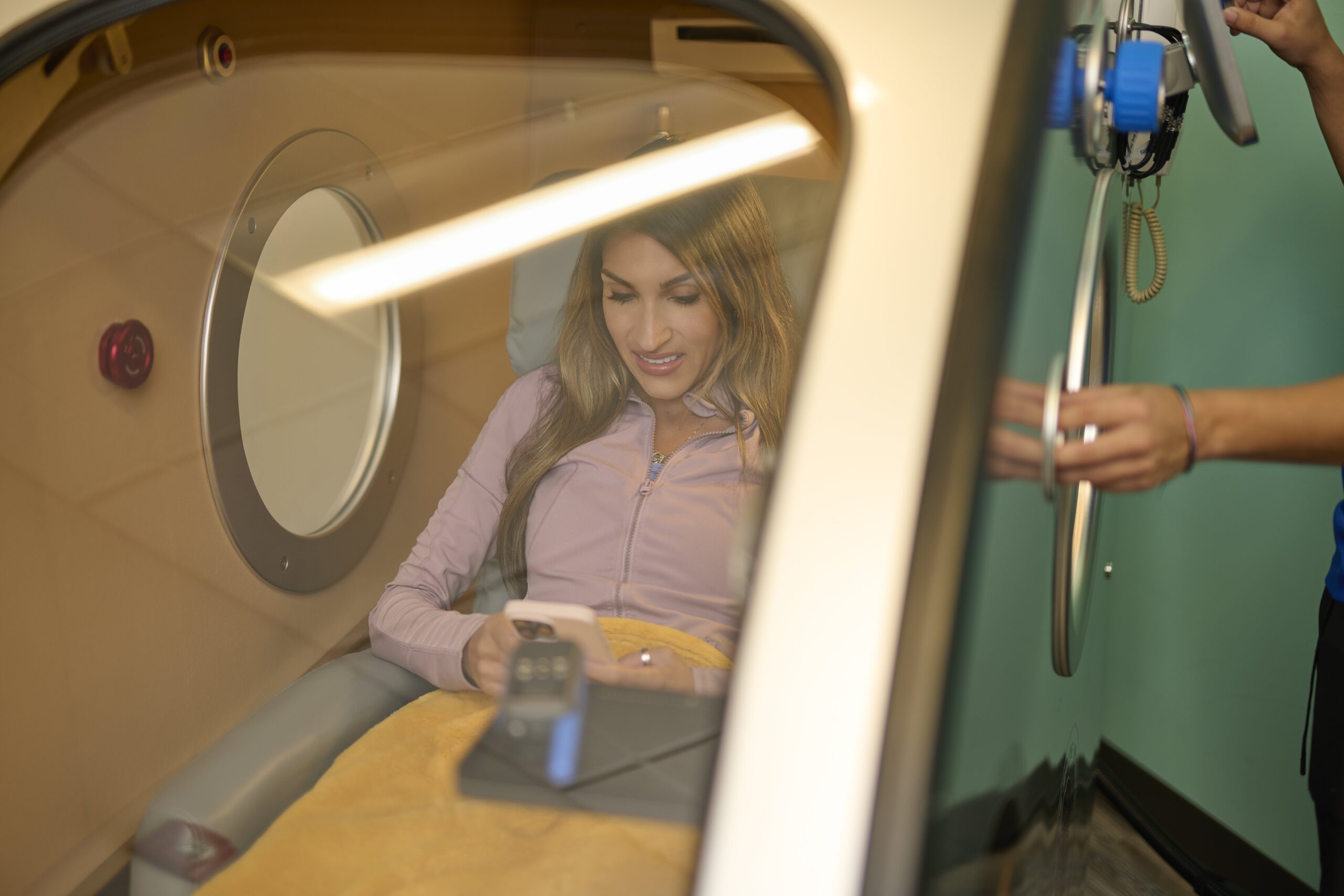
HBOT/NAD+ IV therapy
At the Neuroregenerative Institute at South Florida Injury, we use HBOT to treat traumatic brain injury (TBI) and post-traumatic headaches. These sessions last 1-2 hours and are done 2-3 times a week for up to 40-80 weeks. Patients are assessed frequently to personalize treatment plans based on symptomatic relief (improving attention, memory and concentration, improving emotions negatively affected by the trauma, improving light/sound sensitivities, improving sleep, improving severity and frequency of headaches).
At the Neuroregenerative Institute at South Florida Injury, we start with weekly intravenous (IV) infusions that take anywhere from 1-4 hours based on how well the patient tolerates the NAD+. Treatments are then personalized based on the patient’s symptomatic relief of their specific TBI symptoms.
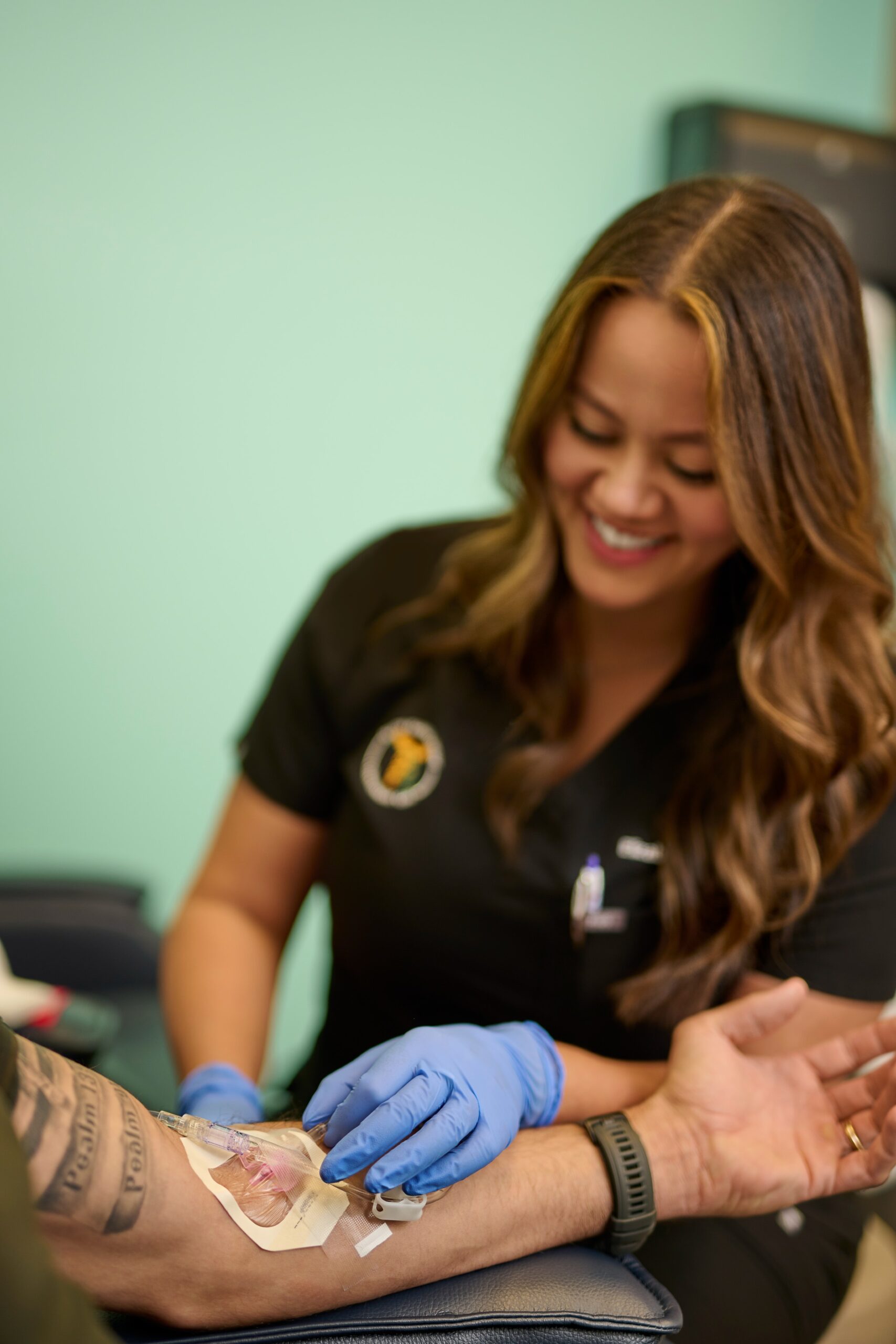
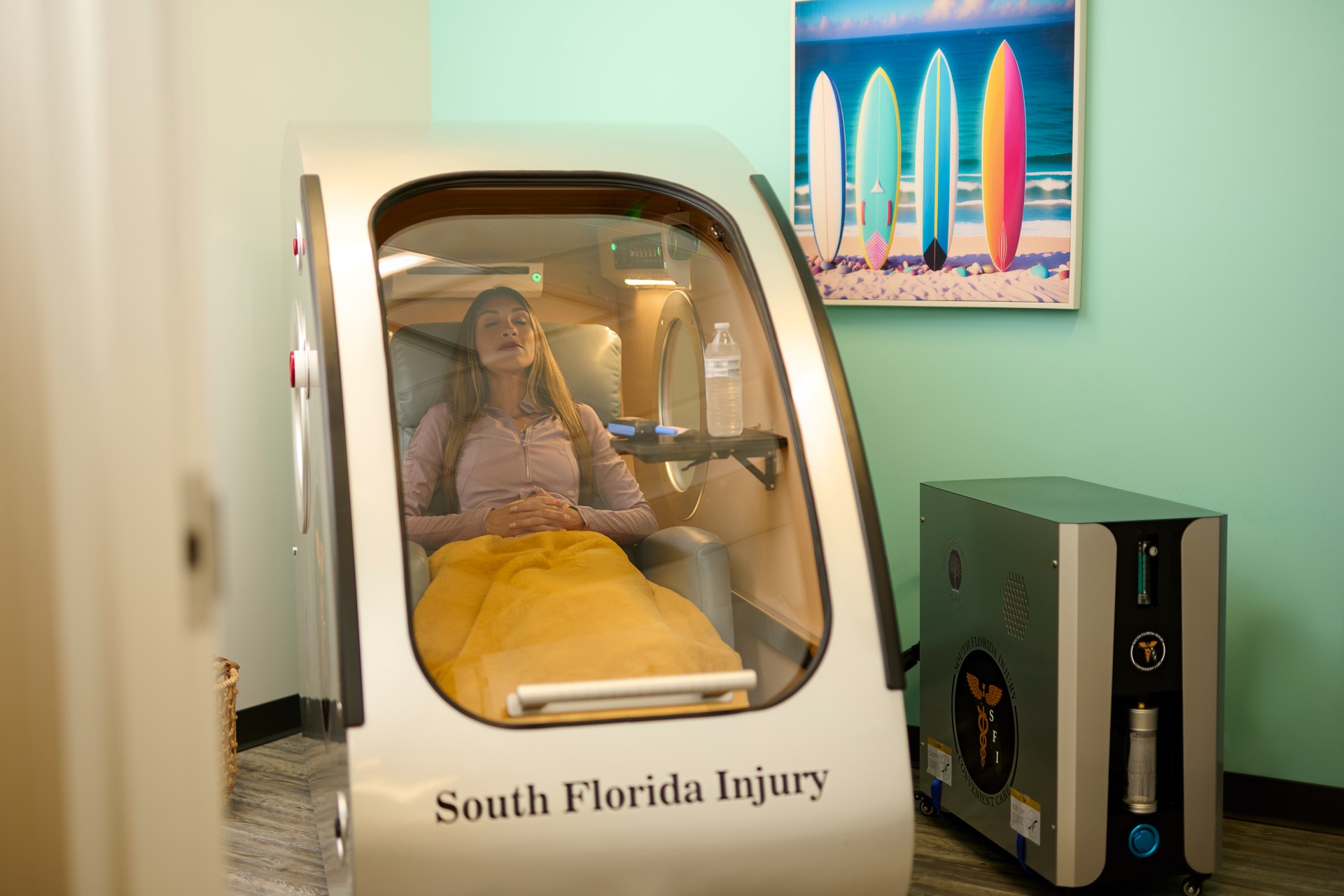
NRI Rehabilitative Therapy
Many patients who suffer a TBI develop difficulties with their gait and balance, coordination, cognition/memory and can even have issues related to their autonomic nervous system such as variability in their heart rate.
At the Neuroregenerative Institute at SFI, patients undergo a comprehensive evaluation by a physical therapist specializing in the field including:
- Assessment of gait, balance, oculomotor, and vestibular function.
- Musculoskeletal assessment related to any head, neck, gait, and / or balance dysfunction.
- Cognitive evaluation establishing baseline measurements of the different aspects of
- cognition, including memory.
- Heart rate variability assessment to guide ANS training and regulation.
- Brain wave assessment to guide Neurofeedback training and reorganization.
Treatments are then tailored to each individual patient and may include manual therapy, vestibular and oculomotor therapy, sensory integration and balance training, cognitive rehabilitation, brain wave biofeedback therapy, heart rate variability training and vagal nerve stimulation. Patients typically treat 2 – 3 times per week anywhere from 45-60 minutes per session and are reassessed often to determine progress and allow for modifications of the treatment plan.
